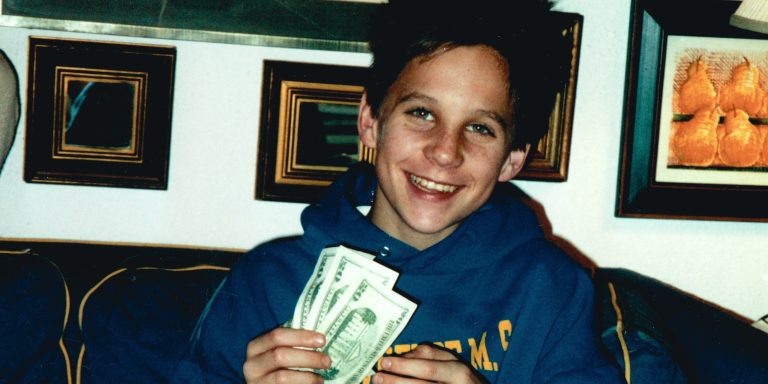Ray Trapani flashes a devil-may-care smile in the new Netflix documentary Bitconned when he reminisces about his childhood. Raised in Atlantic Beach, New York, by a single mother of three, he started dreaming about getting rich quick from a young age — and, if he could have gotten away with it, wouldn’t have thought twice about notating in his school yearbook that he wanted to be a criminal when he grows up.
That declaration isn’t mere bluster. Trapani, a future co-founder of crypto company Centra Tech, took his first steps down that path as an adolescent. He used a stolen prescription pad to obtain drugs, which he and his cronies then turned around and sold at a premium. From there, he teamed up with two former classmates for another business, this time a legitimate one: Renting luxury vehicles to big spenders in Miami. “Things have changed,” Trapani says in the just-released Netflix doc about the wild early days of the cryptocurrency mania.
“Nowadays, you’ve got to figure out some way to finesse the system.”

Bitconned, one of several major new Netflix releases this week, goes on to show how shady expenses and overspending threatened to sink his Miami venture, but he was soon on to his next scheme. Thanks to a tip from high school classmate Sam “Sorbee” Sharma, he learned about the potential of the nascent yet booming crypto market. Centra Tech, founded by a couple of South Florida hustlers who were good at Photoshop, promised Trapani an easy way to make enough money to pay back his loans — and to live like the king he always knew he’d be.
“Crypto [was] just this new unfound territory, completely unregulated by the SEC,” Trapani says in Bitconned. “Anytime you find a market like that, you just have to figure out how to exploit [it].”
Trapani and Sharma launched Centra Tech in 2017, and it purported to be raising money through an initial coin offering for a cryptocurrency called Centra. The company also claimed it was launching a debit card that would let users easily spend Centra and other virtual currencies. “Centra was the archetype of what was wrong with cryptocurrency,” Nathaniel Popper, the New York Times journalist who eventually exposed Centra’s fraudulent claims, says in Bitconned.
“In a sense, Centra was the story of crypto itself, which is an endeavor that has something real underneath it, but keeps failing … and yet people keep coming back to it.”

The Centra Tech website promised that its debit card would be run on the Visa network and that it had an executive team of business and finance veterans behind it with Ivy League degrees and years of relevant professional experience. Of course, none of that was true. “Text messages among the defendants reveal their fraudulent intent,” the SEC announced in a 2018 press release following charges against the Centra Tech founders.
“After receiving a cease-and-desist letter from a major bank directing him to remove any reference to the bank from Centra’s marketing materials, Sharma texted to Farkas and Trapani: “[w]e gotta get that s[***] removed everywhere and blame freelancers lol.” And, while trying to get the CTR Tokens listed on an exchange using phony credentials, Trapani texted Sharma to “cook me up” a false document, prompting Sharma to reply, “Don’t text me that s[***] lol. Delete.”
Check out a trailer for Netflix’s Bitconned below.








